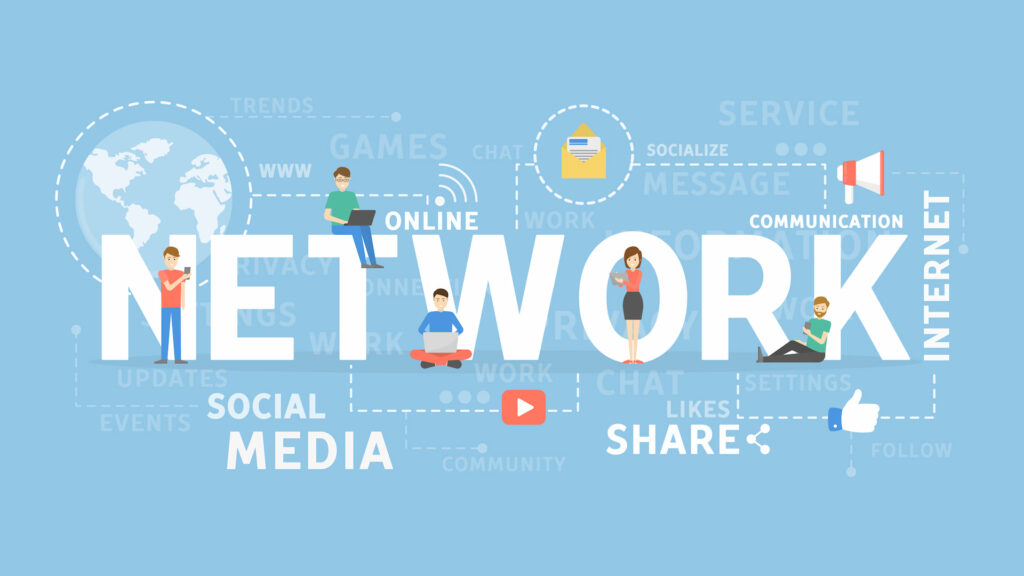A lot has happened this year, hasn’t it? From the emergence of ChatGPT 4.0 to Twitter’s transformation into “X,” we’ve seen it all. With 2024 in near sight, now is one of the best times for businesses to re-strategize their plans for the next year.
One plan every business should be thinking of is checking out internet service providers and finding the right one. In an age where security and high-speed internet are a must, we’ve put together nine internet service providers that you should look out for in 2024!
You can also find the best internet service providers on the Oppuous marketplace at the best prices. Without further ado, let’s jump right in!
What Should Businesses Look for in Internet Service Providers?
With almost every other company claiming that they’re unique and offer the best, it can be difficult for small businesses to choose among current internet service providers. To help entrepreneurs make their decisions more easily, we’ll look into some factors that you should consider when browsing the best internet service providers.
Speed
It’s only natural to look out for internet connections that can help you get work done in the office. That often means looking for speed. Those who run their businesses from home will also require high download and upload speeds. Your usage can help you find the internet speed you need.
Here’s how it works:
- Browsing, emailing, and online communication: 10-25 Mbps
- High-quality video streaming: 25-40 Mbps
- Playing 4K quality videos and gaming: 40-300 Mbps
While these may not cater to businesses specifically, they do give you a good idea of the different plans you should consider from your local internet service providers. Also, never ignore your upload speed.
As long as your internet service providers can offer at least 10% of your current download speed for uploading, you’ll be good to go.
FUP (Fair Use Policy)
There isn’t much worse than having great internet speed, only for it to go crashing down after a couple of minutes. This is the essence of what FUP does, and it can seriously lower customer satisfaction. Referred to as “Fair Use Policy,” FUP gives internet service providers the right to lower your internet speed once you cross a certain usage limit.
Check if your internet service providers practice the same or if they provide unlimited data plans. Since every plan differs in speed and price, some may limit your usage to 100 GB, while others may have higher limits.
If you can’t find anyone that provides unlimited plans, track how much data your business operations regularly need. Once you have that information, go for monthly plans that give you enough data for your business to run smoothly for a month. Then rinse and repeat.
Support
A sign of responsible and trustworthy internet service providers is that they never leave customers hanging. Whether it be router configuration, technical difficulties, or anything else like a plan upgrade, ensure that your chosen ISP (internet service provider) is proactive in providing assistance.
If available, try digging up past customer reviews to know more about multiple local internet service providers and the usual way they treat customers. You can even try asking a few local business owners you know to get assured service.
Price
Not every company will provide the same pricing. Some internet service providers are costlier than others. This is where you’ll have to be vigilant and find an ISP who doesn’t charge extra just for being an established brand.
Also, as you buy plans with higher broadband, you’ll be paying more. You should try to only pay for what you need. Tracking is of great help in this situation. See how much bandwidth you normally need and choose a plan that fits your budget and required bandwidth accordingly.
Types of Internet Services
Many internet service providers do a good job of staying up to date with the latest tech. However, depending on where you live, the options can be limited. While some areas may have seamless direct subscriber lines (DSL), other places, such as rural areas, may depend on satellite internet.
As long as you aren’t far off into the countryside, you should be able to access DSL internet at a bare minimum. However, it’s still good to ask the type of technology your local internet service providers are using.
Watch Out for These 9 Internet Service Providers in 2024!
You’ve probably got a good idea of what your ideal internet service providers should look like. Based on the categories above, we’ve put together 10 ISPs that are worth checking out in 2024! Of course, each area will have different options.
AT&T
You can’t have a list of the best internet service providers without mentioning AT&T. As America’s oldest cellular company, it provides comprehensive data services for both 5G home internet and small businesses.
In fact, the company also utilizes optic fiber technology to provide high-speed internet while also offering wireless connections. This is great for business owners who work remotely while traveling.
Even businesses in rural locations like Kenwood, Oklahoma, can benefit from AT&T’s 5G internet services.
Speed:
For their wired connections, AT&T internet provides a speed range of 5-5000 Mbps for both download and upload. On the other hand, their wireless service provides a 40-140 Mbps speed range for downloads and 5-25 Mbps for uploads.
Pricing:
- Wired business plans: $70-100/month
- Wireless business plans: $70-395/month
Highlights:
- Offers both wired and wireless services for businesses.
- One of the few internet service providers to enable 5G in rural locations.
- Good range of bandwidth for small businesses.
Verizon Fios
Verizon Fios is one of the—if not among the—most widely-used internet service providers in America. Their service covers 99% of the entire American population. For citizens in the northeast and mid-Atlantic U.S. locations, Verizon provides fiber connections.
Other regions can make use of the company’s DSL internet service. As a popular choice, many people prefer internet service providers like Verizon because of their high download and upload speeds. These usually don’t have a data limit to them, either.
Speed:
Overall, Verizon offers a good range of internet speeds between 25-2000 Mbps. Both download and upload speeds here range from 25 Mbps to 2Gbps.
Pricing:
There are three main monthly plans provided here:
- 300 Mbps: $24.99/month
- 500 Mbps: $44.99/month
- 1 Gbps: $64.99/month
Highlights:
- Provides speeds up to 2Gbps
- Offers fiber connection to certain regions
- Has no data limit or contracts
Viasat
We couldn’t continue listing the best internet service providers without mentioning Viasat. The reason lies behind their technology. They’re one of the very few internet service providers here that still utilize satellite technology.
What makes Viasat’s satellite internet so special is that it’s available all over the U.S. in every state. However, those using satellite internet from Viasat will have to make certain adjustments, such as being under an area of clear sky and a good coverage of the South direction.
Any opaque objects, such as buildings or even trees, can cause your internet speed to lower. Since cities are usually flooded with buildings, this solution works better for businesses in more rural areas.
Speed:
For any plan you choose, your upload speed will be capped at 3 Mbps. Although, the download speeds can vary anywhere between 12-150 Mbps.
Pricing:
You’ll find three main pricing plans here, including:
- 25 Mbps capped at 40-60 GB high-speed data.
- 75 Mbps capped at 100-150 GB high-speed data.
- 150 Mbps capped at 300-500 GB high-speed data.
Note: These plans do not have fixed pricing and differ from location to location. Customers can check their available price plans using the link https://buy.viasat.com/en-US/r/
Highlights:
- Offers internet in every U.S. state
- High data limits for maximum use
- Available in rural areas
Google Fiber
Google is our next pick for this list. If you didn’t already know, even Google has joined the competition and is now among the best internet service providers. As the name suggests, the tech giant provides internet via fiber technology.
It’s good to note that Google Fiber is only available in 10 U.S. for now. Other than fiber internet, Google also offers wireless internet to a total of seven U.S. states. This service is called “Google Fiber Webpass.”
While it may not be available everywhere, Google Fiber provides some of the fastest internet speeds in the entire country.
Speed:
Download and upload speeds are entirely the same on Google Fiber, ranging from 1-8 Gbps. Their wireless internet “Webpass” hosts a download speed of 100 Mbps and an upload speed of 1 Gbps.
Pricing:
There are four primary price plans:
- 1 Gbps: $70/month
- 2 Gbps: $100/month
- 5 Gbps: $125/month
- 8 Gbps: $150/month
Google Fiber Webpass only has one plan: 1 Gbps, priced at $70/month.
Highlights:
- Provides gigabit speeds at reasonable prices for businesses
- Uses fiber technology
- Each fiber plan comes with a free Wi-Fi router
Spectrum
Spectrum started out as a cable TV service company. Back then, it was named Time Warner Cable. Acquired by Charter Communications in 2016, the company started providing data services to 40+ states in the U.S. under the name of Spectrum.
This company uses a Hybrid Fiber-Coaxial network connection. This allows it to be among the internet service providers who deliver download speeds of up to 1 Gbps. Spectrum can be a popular choice among small businesses due to its pricing and no data cap.
Speed:
The download speed at Spectrum can range anywhere between 300-Mbps to 1 Gbps. For uploads, Spectrum provides a speed range of 10-35 Mbps.
Pricing:
Depending on the speed your business needs, you can choose from three options:
- Up to 300 Mbps: $49.99/month
- Up to 600 Mbps: $99.99/month
- Up to 1 Gbps: $164.99/month
Highlights:
- Provides hybrid fiber-coaxial internet connection
- No data limits on plans
- Businesses can get free integration with RingCentral on regular-price plans
Cox Communications
As America’s biggest private telecom business, Cox Communications is one of the most well-known internet service providers today. However, their services are restricted to 19 U.S. states.
While Cox mainly deals with providing cable internet, it does provide fiber internet to businesses in the U.S. Apart from business internet, customers can subscribe to other services such as home security, automation, digital video, etc.
What sets Cox apart from the many other internet service providers is that it allows you to use their internet anywhere you go. With multiple public Wi-Fi networks and Cox Hotspots, this service lets businesses stay connected on the go.
You can find comprehensive internet solutions for your business, like Cox Communications, at a discounted price on the Oppuous marketplace!
Speed:
While Cox Communications can provide an internet speed range of 25-940 Mbps, its business plans can be up to 1 Gbps.
Pricing:
Contact Cox Communications to find out different price plans for businesses.
Highlights:
- Provides hotspots and public Wi-Fi networks for customers
- Offers more than just internet services such as home security
- Contains 30,000 miles of “Metro Fiber” that facilitates cable internet
Comcast Business
Comcast is an interesting one on the list. This is mainly because it’s one of the very few that emphasize using 4G internet as a backup in case your main connection goes down. This usually lasts for up to 16 hours.
Businesses can also choose to get cybersecurity services along with their internet plans and, similar to internet service providers like Cox, Comcast hosts public hotspots to ensure you’re never offline.
It’s also good to note that Comcast does use fiber technology to provide businesses of all sizes with high-speed and reliable internet. Plus, there’s also no limit on how much data you use.
Speed:
There’s a good range of download speeds from 50 Mbps to 1.25 Gbps. The upload speed here ranges from 15-35 Mbps.
Pricing:
Contact us for more pricing info depending on where your business office is.
Highlights:
- Provides backup 4G data
- Holistic solution for Internet and cybersecurity
- Good range of download speed
Centurylink
CenturyLink is widely available in over 16 U.S. states and is within the top 10 internet service providers in America. In fact, its DSL network has a user base of 50 million people.
For businesses, CenturyLink provides two main types of services, including DSL and fiber optic internet. A unique aspect of internet service providers like CenturyLink is that they provide professional installation for internet setup if requested.
However, you should note that CenturyLink’s fiber optic internet isn’t available in all of the 16 states they service. You’ll have to get in touch to see if they do serve your area with a fiber connection.
Speed:
CenturyLink provides similar download and upload speeds in different plans. For DSL internet, businesses can download/upload speeds of 100 Mbps, while fiber optic can provide download/upload speeds of up to 940 Mbps.
Pricing:
- Simply Unlimited Business Internet: $55/month.
- Business Fiber: $75 per month.
Highlights:
- Has both DSL and fiber optic internet
- Reasonable price plans for high-speed fiber connection
- Provides on-site internet setup installation
Mediacom
Mediacom is one of the very few internet service providers capable of delivering speeds of over 10 Gbps. Using a vast fiber network spreading 600,000 miles, Mediacom is able to offer small businesses reliable and fast fiber internet.
Businesses can even create custom plans for their internet needs. However, their services may not be available everywhere, so it’s best to contact them to find out which locations they currently serve.
Speed:
The download speed at Mediacom can vary from 60-1000 Mbps. Similarly, upload speeds can reach a maximum of 30 Mbps.
Pricing:
- 60 Mbps: $129.95/per month
- 100 Mbps: $169.95/per month
- 300 Mbps: $229.95/per month
1 Gbps: $329.95/per month
Why Is Fiber Internet Better Than Traditional MobileInternet?
You may have seen that several of the internet service providers on the list above facilitate fiber optic internet. So, what makes it so great that everyone wants their hands on it, even after revolutionary 5G internet? There are three main reasons:
Unlimited Data
Unlike typical mobile data plans, fiber optic comes with unlimited data plans. This helps businesses pay a flat monthly fee and use all the data they want for meetings, voice calls, etc. In fact, this is also great for businesses that aim to measure and track their monthly data usage.
Weather
If you’ve used cellular data, then you know the pain of being disconnected when the weather isn’t very kind. Fiber optic, on the other hand, isn’t greatly affected by weather and is quite durable.
Using fiber cables, businesses can keep operations running and stay online even when the weather is harsh.
Bandwidth
When multiple people in a room use 5G as a hotspot, the overall speed of each individual will drop due to the strain on the bandwidth. This is exactly what fiber optic is immune to.
No matter how many employees are connected to the same fiber network, each one will enjoy the same speed even when there is a surge in traffic.
Conclusion
All in all, these are nine of the best internet service providers that all small businesses should consider in 2024. If you’re not already using one of the options mentioned, give them a try next year and see how they can make a difference for your company’s connectivity!
You can also find the best internet solutions, such as Cox Communication, on the Oppuous Makeplace at the best rates! Pay us a visit today to transform your business’s internet.









